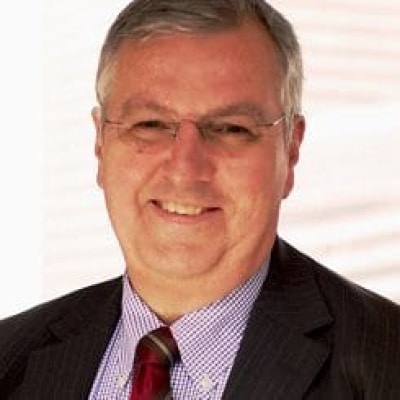
Stewart Aldcroft, Hong Kong resident, veteran of the Asian asset management industry and member of the FBC Advisory Council.
At last! We can breathe!
Officially, after 945 days, Hong Kong finally allowed its people to walk around the streets without facemasks, from 1 March. The HK Government’s stubborn facemask policy was reversed after significant levels of public opprobrium levelled at senior officials.
On a radio show many call-in listeners bombarded the Financial Secretary for the first 30 minutes, only wanting to talk about removing facemasks and not the Budget he had spent two-and-a-half hours presenting two days earlier. It seems some levels of public opinion can influence change. However, as good as it is to no longer wear a facemask, we now have to reacquaint ourselves with the delights of diesel exhaust fumes and tobacco smoke (vaping is banned in Hong Kong) when walking the streets.
Mutual fund sales in 2022 fell by around 55% from 2021 levels, as investors in Asia struggled to comprehend geopolitical influences on markets. In Hong Kong, gross sales of traditional mutual funds were around US$46bn, however, net sales were minus US$8bn. Sales in Singapore and Taiwan suffered similar sharp falls in 2022. Anecdotal reports from banks’ wealth management divisions, noted that 2022 was a year of hiring new staff, probably more than 5,000 were recruited. Now the job is to get these new recruits, few of whom had previous financial experience many of whom came from the airlines and airport staff, real estate and life insurance agents, to understand how wealth management works and become effective in selling it to customers. It is expected that at least 15% of the new recruits will be let go during 2023 if they can’t deliver on the sales numbers required.
The trolley bags are back!
Since the start of February, Mainland Chinese tourists have begun visiting Hong Kong again in large numbers. The first day of the reopening of the borders between Hong Kong and China, saw over 1m people on the move. Since then, whilst numbers are lower, they are still very high. In 2019, before covid, Hong Kong had more than 56m visitors but since then, the numbers dropped to less than 1m. Tourism is a major industry for Hong Kong and helps sustain a strong economy. On the back of this, there is a secondary industry involving “parallel traders”. These are day visitors who cross the HK/China border every day with their back packs and trolly bags to buy large volumes of pharmaceutical products, clothing and other desirable items, to take back to China to resell. Profits are good, with a 30% to 50% mark up (which still makes them cheaper than if sold through regular routes in China), and the traveler can make US$20 to US$50 per trip for their troubles.
“Hello Hong Kong! Happy Hong Kong!”
In early January, the Hong Kong Government launched the “Hello Hong Kong” campaign to encourage visitors to come and see us. Included in the package are some 500,000 free airline tickets for distribution, mainly for China and Asian markets (short haul is cheaper). “Hello Hong Kong” is to migrate to “Happy Hong Kong” during the summer, as more arrive to see our smiling faces (now that masks can be removed).
With more arrivals, especially from China, it can be expected that the cross-border investment schemes, especially Wealth Management Connect under the auspices of the Greater Bay Area developments, will at last see some real activity and growth. The Hong Kong Government believes this can also lead to a big increase in the creation of Family Offices. Singapore has somewhat stolen a march on Hong Kong for Family Offices. It recently announced that the numbers had grown from around 50 in 2019 to over 1,500 in 2022. Many are believed to come from China, but also given the reputation of Singapore as being the “Switzerland of the East”, families from Europe and the Middle East have also been active in setting up offices. Singapore has similarly seen a big increase in the numbers of hedge and alternatives funds and private equity funds being set up in the last couple of years. This has probably been because it is economically possible to do so in Singapore for smaller scale, the average size is less than US$100m, than would be the case in Hong Kong or elsewhere. The volume of growth is such that some are asking if Singapore might have capacity constraints. This may be true for the personal servicing requirements, but it is unlikely from an operational or administrative point of view, most of which is fully automated these days.
WMC is go!
Almost two years after it was launched, Wealth Management Connect within the Greater Bay Area of China, which includes Hong Kong, Shenzhen, Guangdong and Macau, is now beginning to operate as had been intended. This is because wealth management staff in the major banks are now able to cross the border from Hong Kong into China and talk directly with their prospective customers, providing advice and guidance on the selection of mutual funds. The next 6 to 9 months will be very interesting, to see how quickly and by how much, the WMC will pick-up, and to what extent it will lead to substantial increases in the volume of fund sales in the Hong Kong market. In the short term this will be of no benefit to UCITS products, as they are deliberately excluded from WMC, but locally domiciled funds can be expected to benefit. It may also be an opportunity for the Regulators on both sides to consider improvements and upgrades in a “Phase 2” for WMC, which the industry has been seeking since it started.
Can the Middle East look East?
During the first quarter of 2023, a number of government and political leaders from China and Hong Kong visited Saudi Arabia, Qatar, Dubai and other major Middle Eastern locations. A desire to win business and persuade companies (especially Saudi Aramco) to have their shares listed in Asia (ideally Hong Kong), and for wealthy families to set up family offices in the region are all on the agenda. The key question is: “Will Middle Eastern wealth consider moving money to Hong Kong or Singapore?”
Asia has been a bit slow in offering its wares in the Middle East. It is said that because the UK and Europe have mild summers (when compared to the fierce heat of Arabia), this has been an influencing factor in attracting Arab money, especially to buy homes in London and horse riding stables in the Cotswolds. It remains to be seen if China, Hong Kong and Singapore can persuade change, especially for family money. Meanwhile a lot of effort is going on in trying to succeed.
And finally….
As part of the Hong Kong Government’s campaign to show Hong Kong has fully reopened to business and tourism, they are giving away around 500,000 free tickets to fly here. Don’t miss the opportunity, we really are open, and there is a lot going on with in-person events, sporting and cultural events and many other activities. Full details here: https://www.discoverhongkong.com/uk/deals/in-town-offers.html
Stewart Aldcroft



